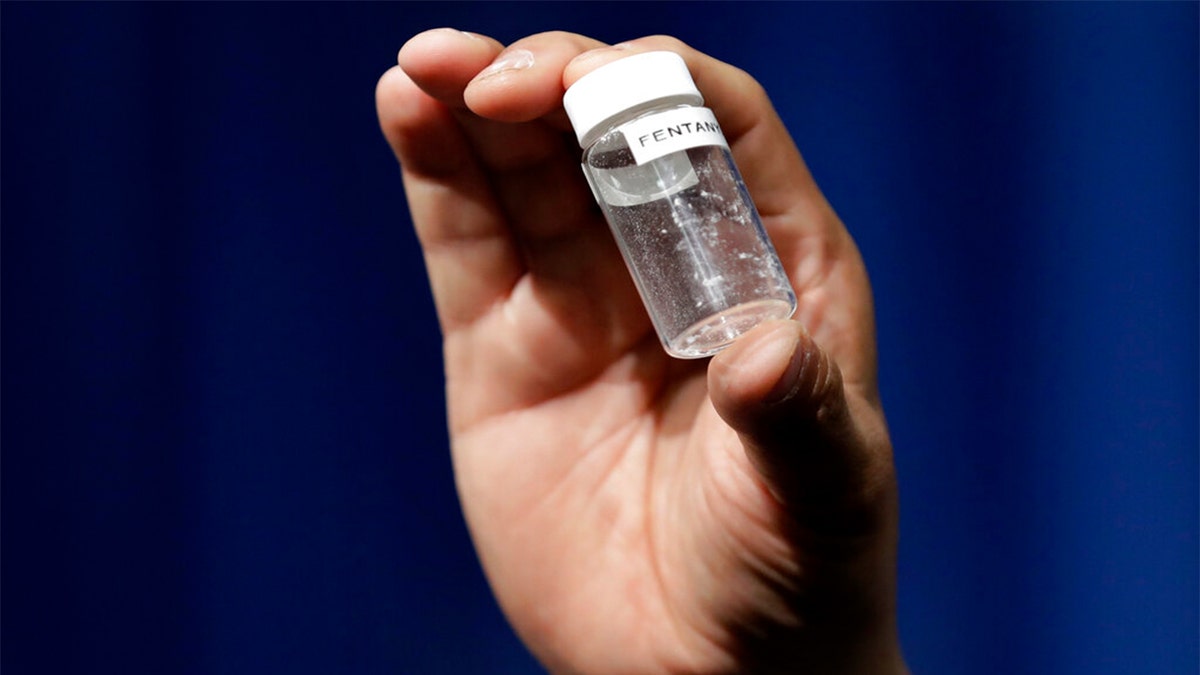DEA launches ‘National Fentanyl Awareness Day’ to highlight overdoses, drug overtaking US
Fentanyl is a synthetic opioid 50 times stronger than heroin and 100 times stronger than morphine
{{#rendered}} {{/rendered}}The Drug Enforcement Administration (DEA) is marking May 10 as "National Fentanyl Awareness Day" to bring more people’s attention to overdose deaths across the U.S.
"Fentanyl is the single deadliest drug threat our nation has ever encountered," DEA Administrator Anne Milgram said in a statement. "Fentanyl is everywhere. From large metropolitan areas to rural America, no community is safe from this poison. We must take every opportunity to spread the word to prevent the fentanyl-related overdoses claiming scores of American lives every day."

A reporter holds up an example of the amount of fentanyl that can be deadly after a news conference about deaths from fentanyl exposure, at DEA Headquarters in Arlington, Va. (AP Photo/Jacquelyn Martin, File)
Fentanyl is a synthetic opioid 50 times stronger than heroin and 100 times stronger than morphine. Authorities say drug traffickers are increasingly mixing fentanyl with other illicit drugs to drive addiction and create repeat customers.
{{#rendered}} {{/rendered}}It was originally developed as an analgesic – or painkiller – for surgery. It has a specific chemical structure with multiple areas that can be modified, often illicitly, to form related compounds with marked differences in potency.
OHIO AG ISSUES WARNING ABOUT ‘FRANKENSTEIN OPIOIDS,’ MORE POWERFUL THAN FENTANYL
Overdose deaths roughly quadrupled, going from 8,050 in 1999 to 33,091 in 2015. From May 2020 to April 2021, more than 100,000 Americans died from a drug overdose, with over 64% of these deaths due to synthetic opioids like fentanyl and its analogs.
{{#rendered}} {{/rendered}}Officials walk past images of illegal drugs outside the Edward R. Roybal Federal Building, May 13, 2021, in Los Angeles. (AP Photo/Marcio Jose Sanchez, File)
Between November 2020 and November 2021, more than 107,000 people died of drug overdoses in the U.S., according to the Centers for Disease Control and Prevention (CDC). Around 66% of those deaths involved synthetic opioids like fentanyl, though many people who do overdose were not aware they were taking fentanyl.
CLICK HERE TO GET THE FOX NEWS APP
According to the DEA only two milligrams of fentanyl is considered a "potentially lethal dose," and is particularly dangerous for someone who does not have a tolerance to opioids.
{{#rendered}} {{/rendered}}The Associated Press contributed to this report.


